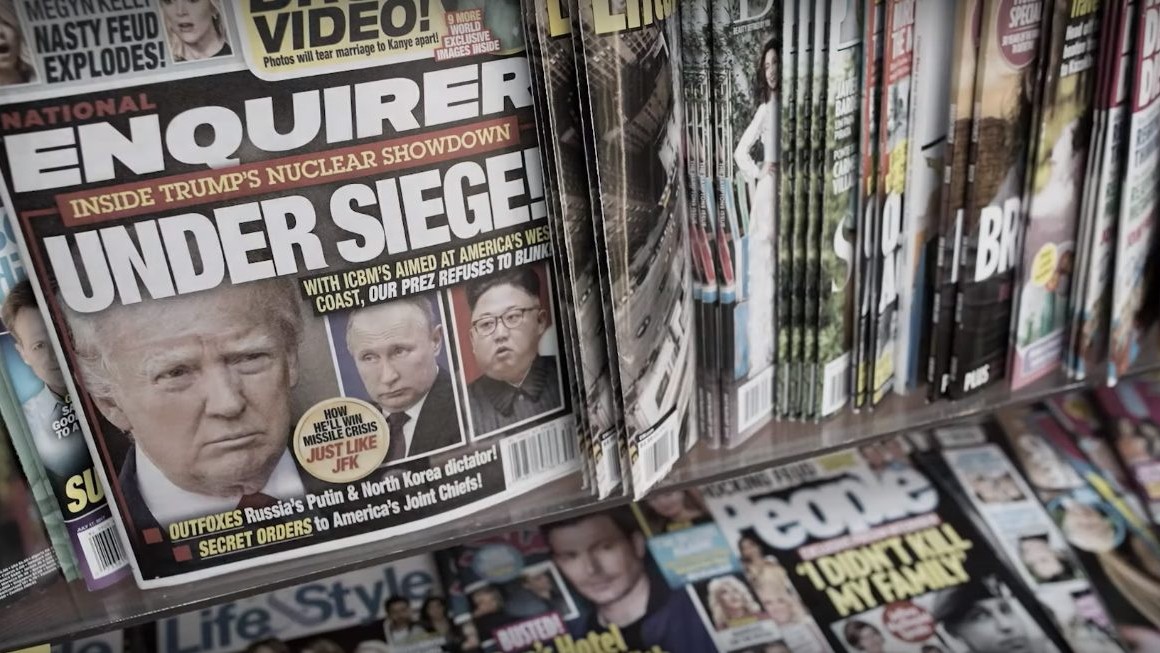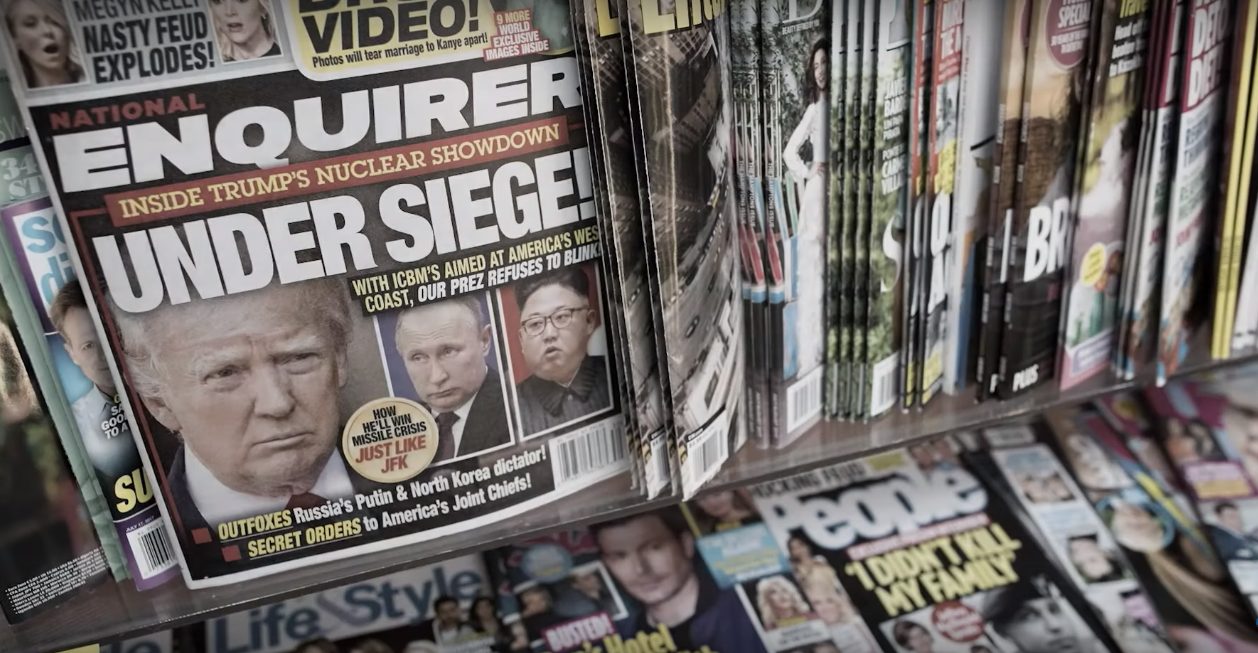The News. “Is it entertainment, or is it information?” asks Fred Friendly in Scandalous, a question at the heart of this feature-length documentary about the National Enquirer.
The first half of the film covers the history of the Enquirer and how Italian-American businessman Generoso Pope allegedly bought the newspaper with Mafia money, part of his plan to develop a publication that would communicate to mass-market America. After witnessing a gory car accident – and the crowd of passers-by stopping to watch – he realized he “gotta make a gore rag.” Circulation boomed, but then the subject of gore was abandoned when the newspaper became a staple at the front of every supermarket check-out.
“Generoso Pope really understood the psychology of the average American person,” explains ex-Enquirer reporter, Judith Regan, “He used to call the reader of the National Enquirer ‘Missy Smith in Kansas City.’” A series of past Enquirer employees explain how an understanding of schadenfreude led to inevitable success: “There’s a sort of nasty little characteristic that people have… They get a little jealous of success. They want to see someone taken down a peg or two,” says one. “It’s like in Ancient Rome,” says another. “They cheer them when they are famous, and they cheer them when they are doing well, but when things go wrong, they give them the thumbs down and say ‘Good riddance. To hell with them.’” Facts were not important, says another. The film reiterates that the journalists and their editors were only interested in stories that would sell copies, and they would do anything to get them.
In 1988, their definition of a lucrative story expanded to include politics, when the Enquirer published photographs proving Democratic Presidential candidate Gary Hart had lied about having an affair. The Enquirer, we learn, either exposed or backed politicians – and was prepared to pay generously for either information or silence. Enter Donald Trump and the story of how he used the newspaper to propel himself into the limelight. Trump was so intent on becoming a star that he would often call the paper using fake names to drop stories about himself. The Enquirer considered him such a good subject that they assigned Trump his own journalist.
Much of this story is nothing new. We know that Donald Trump is President, and we know the media had a lot to do with it. But what is interesting is watching the interviewees, mostly ex-employees of the Enquirer, bounce between pride and mild concern that they may hold some responsibility. “How did we get a tabloid subject who’s now President of the United States? And do I have any shame in this or potential guilt of my own?” asks Larry Haley, the employee who was assigned to cover Donald Trump in the 90s. “Hell, you’re just trying to get a Page One that will sell next week,” he concludes.
Scandalous offers a thought-provoking look into a style of journalism that has greatly influenced the culture we live in today. But, at a time when the subject of the media is often the media itself, I wonder if Scandalous lacks a particular element of self-reflection that is required, now more than ever, by all branches of the press. It is, after all, a film by a media company about another media company.
SCANDALOUS: THE TRUE STORY OF THE NATIONAL ENQUIRER (2019)
Directed by Mark Landsman
Distributed by Magnolia Pictures.
97 minutes.
Playing: This Friday at Laemmle Royal.
Alice Kate Bristow
I am a filmmaker from London who specializes in feature-length documentaries. For the last four years, I have been working for UK-based Passion Pictures in Los Angeles under two-time Oscar-winning producer, John Battsek. My work has spanned music documentaries to films about US foreign policy.


